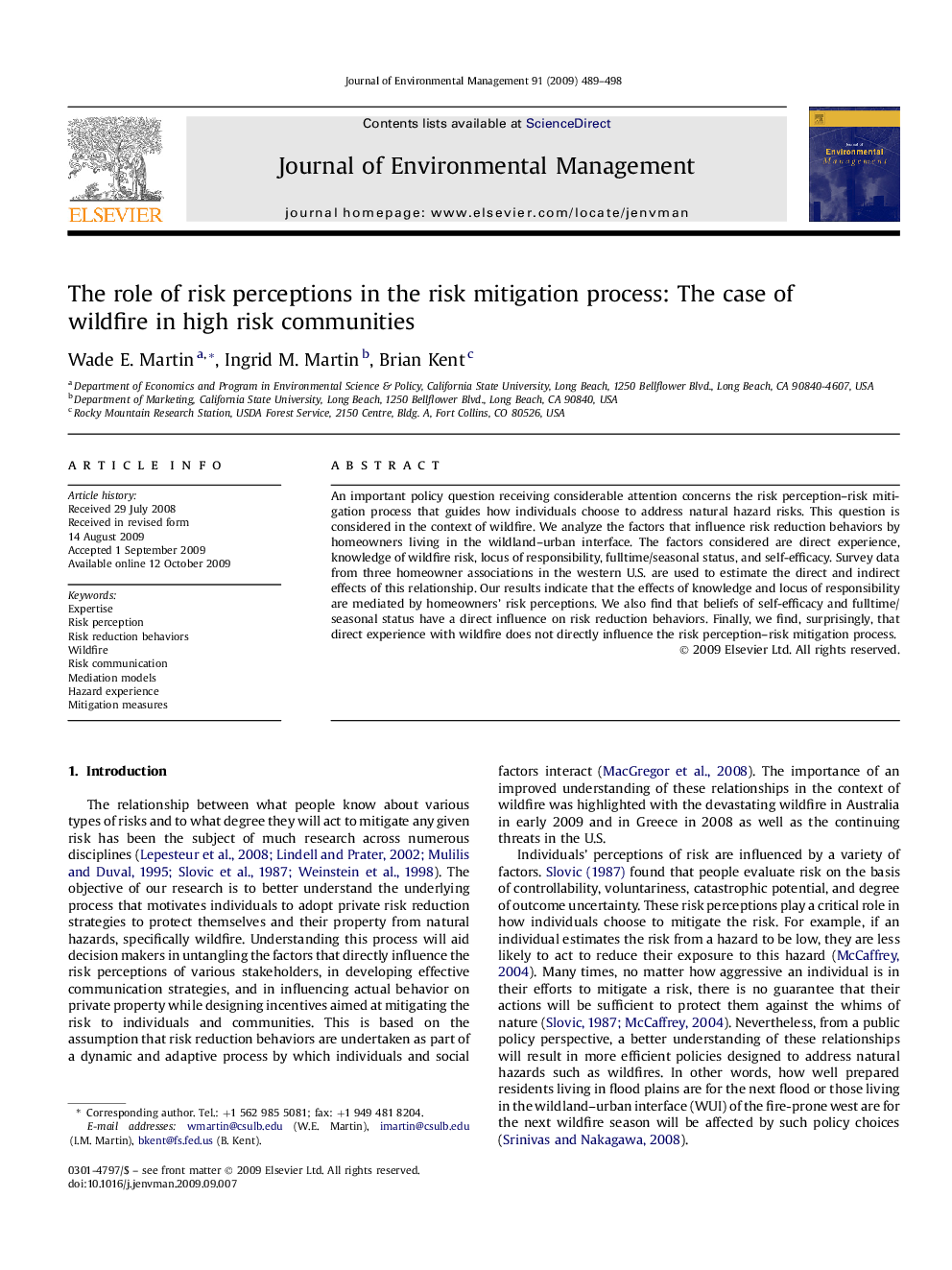| Article ID | Journal | Published Year | Pages | File Type |
|---|---|---|---|---|
| 1057824 | Journal of Environmental Management | 2009 | 10 Pages |
An important policy question receiving considerable attention concerns the risk perception–risk mitigation process that guides how individuals choose to address natural hazard risks. This question is considered in the context of wildfire. We analyze the factors that influence risk reduction behaviors by homeowners living in the wildland–urban interface. The factors considered are direct experience, knowledge of wildfire risk, locus of responsibility, fulltime/seasonal status, and self-efficacy. Survey data from three homeowner associations in the western U.S. are used to estimate the direct and indirect effects of this relationship. Our results indicate that the effects of knowledge and locus of responsibility are mediated by homeowners' risk perceptions. We also find that beliefs of self-efficacy and fulltime/seasonal status have a direct influence on risk reduction behaviors. Finally, we find, surprisingly, that direct experience with wildfire does not directly influence the risk perception–risk mitigation process.
